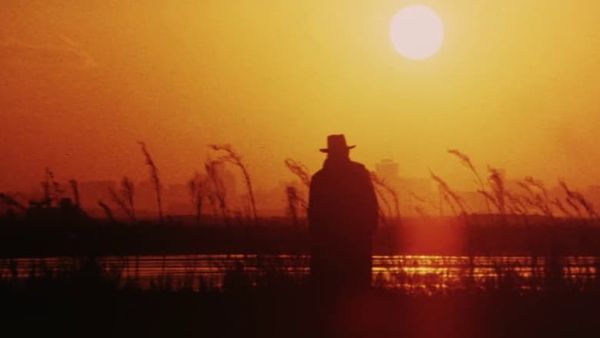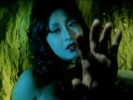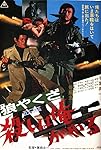Eye For Film >> Movies >> Yakuza Wolf (1972) Film Review

Yakuza Wolf 1: I Perform Murder (Ôkami Yakuza: Koroshi Wa Ore Ga Yaru, The Lone Assassin) is a 1970s Japanese action film staring Sonny Chiba as Gosuke Himuro. The film is a rip of of Django which is a rip off of A Fistful Of Dollars which is a rip off of Yojimbo which is a licensed remake of The Glass Key (1942). Seeking revenge for his murdered father and kidnapped sister, Gosuke Himuro pits two rival Yakuza factions against each other. The filmmakers steal from other films with abandon. If it's not nailed to a solid slab of copyright law, it's filched. This is your intellectual property? You must have drooped it somewhere.
Yakuza Wolf opens with Gosuke Himuro performing a black gloved giallo murder of a couple in coitus. It could have come straight out of Bava's Blood And Black Lace. The colour palette is Argento. Chiba wears the black garb of Frank Nero cosplay. Sometimes he steals Clint Eastwoods' eyes. There is the Ford Mustang Mach 1: its engine's roar has echoes of Bullitt and Vanishing Point.

Despite its blatant thievery, Yakuza Wolf is not entirely unoriginal. It mixes the old elements together in new ways. It brings a Japanese sensibility to them, along with a style of fight choreography that the story hasn't seen before. With its sensationalist approach it is always trying to out do its predecessors. It defiantly strays from the Neorealist sensibilities of Sergio Corbucci's Django.
Although this approach to filmmaking is defiantly fun to watch, it does come with its problems. This is most apparent when it comes to sexual violence, which is overused in Japanese action cinema of the period. The number of times that rape is used to drive the plot in, for instance, the Lone Wolf And Cub series is disturbing. In Yakuza Wolf it is used beyond anything that can be justified by the underlying narrative.
Since Dashiell Hammett's novel The Glass Key was first serialised in Black Mask it has been at the root of well over 50 films. Yakuza Wolf is derivative but it can be seen as part of the cultural collective, a retelling of a modern folktale. The man with no name is a new Hero With A Thousand Faces and his story is a nihilist myth pattern for the 20th Century.
Reviewed on: 18 Feb 2024
















